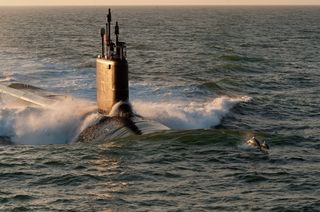US News & World Report
By Nicole Hemmer
Republican Florida state Sen. Alan Hays has a novel idea: to mandate that each Florida student watch Dinesh D’Souza’s documentary “America: Imagine the World Without Her” twice, once in eighth grade and once in 11th grade. The double viewing, Hays hopes, will counteract the “dishonest and insulting” history he believes is being taught in Florida’s classrooms.
It’s not unusual for statehouses to incubate nutty legislative proposals. And Hays’ bill, along with a House bill sponsored by Republican state Rep. Neil Combee, might never become law. But it’s still worth talking about the “Patriotic Film Screening” bills, as they’ve been dubbed, because they highlight the fundamental problem with turning the classroom into a political battleground: Ideological balance is a terrible metric for measuring educational quality.
“Balance” is the watchword behind Hays’ bill. Arguing that “students need to see the truth without political favoritism,” Hays said, adding that “they need both sides, and this movie shows a side they just aren’t seeing.” His argument rests on a distorted view of what happens in the classroom. Conservatives have long held that the American educational system is an exercise in liberal indoctrination, with teachers and textbook writers motivated by a leftist political agenda.
It is a claim that doesn’t stand up to scrutiny. Many school boards are packed with conservatives, especially in Texas, where conservative educational standards set the standard for the national textbook industry.
The push for screening “America” also seems to rest on a misperception about the film itself. I watched it when it was released in theaters last year (you can read my review here) but D’Souza has trimmed it down to an 80-minute “educational version.” While I’ve not seen the new version, certainly shortening the film would improve it, though it’s still about an hour and 20 minutes too long. And even with the pundits edited out, “America” is political entertainment, not academic history.
To be fair to D’Souza, he seems to recognize this. As he told Newsmax last year, upon hearing about Hays’ bill, “I flinched.” And a few days ago he admitted to the Daily Caller that “America” was “not a scholarly enterprise” but rather a blend of entertainment and education. Yet he still supported Hays’ efforts, arguing that “America” represented “an important counterweight to an existing bias against patriotism.”
D’Souza’s film is part of a growing trend in conservative media toward blending entertainment and history. Just look at last year’s bestseller list for history. Half of the top 10 hardbacks were written by conservative entertainment figures: two by Bill O’Reilly, two by Glenn Beck and one by “Fox & Friends” host Brian Kilmeade. As these books and D’Souza’s film show, there’s big money to be made in an ideological approach to history.
That doesn’t mean the approach should be imported to the classroom — at least not under the guise of history. By all means, use “America” to introduce students to the political uses of American history or to the concept of logical fallacy. It’s well suited to both purposes. It is not, however, a suitable text for teaching history. Not because academic history is apolitical, but because “America” isn’t academic history.
Education, of course, is not apolitical. As a site of state-mandated learning, classrooms have long been at the heart of America’s political culture wars. In the past few decades, the battle for the classroom has been shaped by a push for ideological balance: intelligent design alongside evolution, climate change denial next to climate science. In those cases, ideological concerns have overridden principles of peer review, professional standards and disciplinary consensus. Hays and company would like to do the same to history education, a move that would advance a political agenda at the cost of quality learning.
This article was originally published in the US News & World Report




